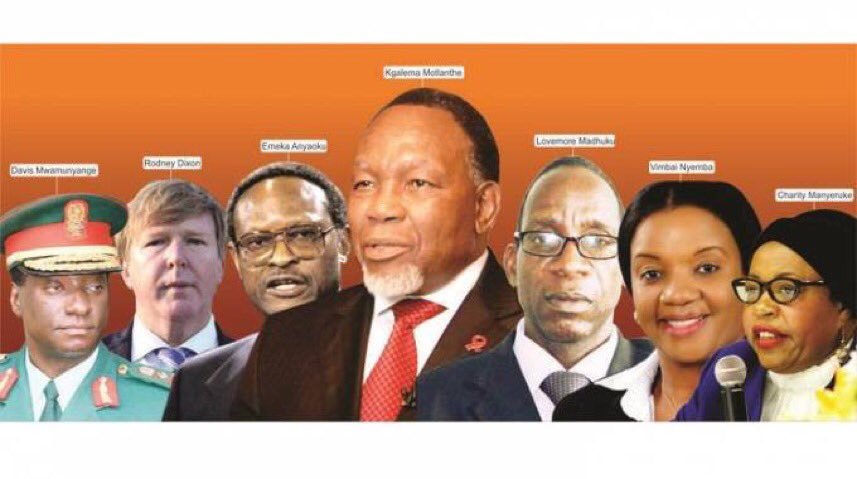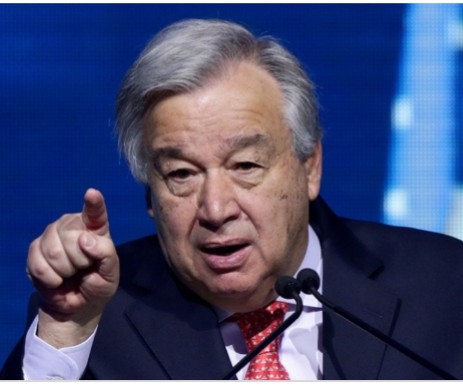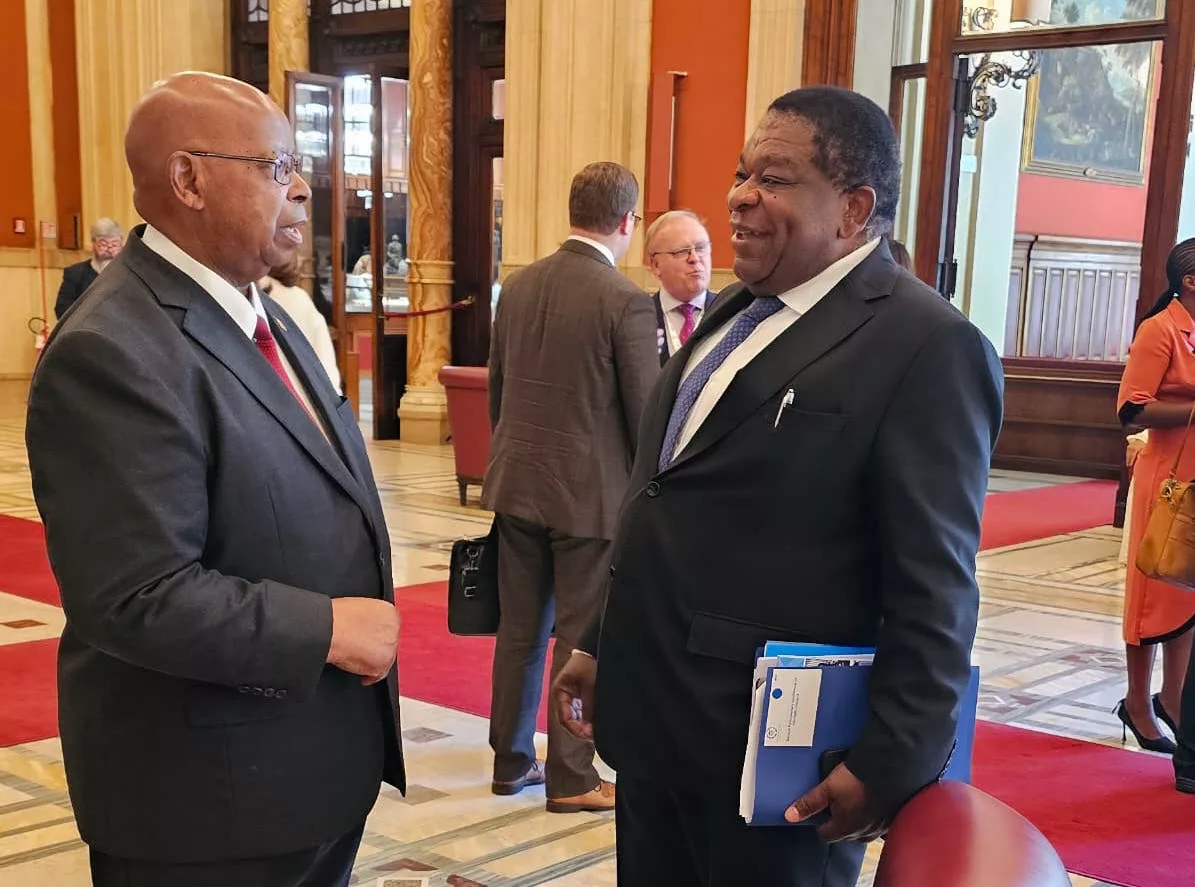By Farai Chirimumimba
It has become clear that power is vested with the people. Therefore let the people and not resource sucking commissions of inquiry take responsibility. The Zimbabwe propensity to rely on commissions of inquiry that sadly never resolve crises, redress gross mismanagement and punish wrongdoers is no longer sustainable as it never worked.
A total of 11 commissions have been set-up since independence in 1980. The February 2019 publication of the (former South African president Kgalema) Motlanthe Commission on the August 1, 2018 post-election violence after the July 30 general elections underscores the bankruptcy of this resource sucking investigatory culture and which, by encouraging relegation of fundamental obligations, has become part of the problem it seeks to solve or redress.
National commissions of inquiry since the (Chief Justice Enoch) Dumbutshena Commission of Inquiry which investigated the events surrounding the Entumbane uprising between November 1980 and March 1981 and (Simpson) Chihambakwe Commission of Inquiry which investigated the killing of an estimated 20,000 civilians in Matebeleland and Midlands by North Korean trained (fearsome) red bereted Fifth Brigade between 1983 and 1985.
The increased frequency following the Highly Acclaimed (Justice Wilson) Sandura Commission Report into the into the Willowgate Scandal in 1988 following the exposure by The Chronicle (Bulawayo based newspaper using information from whistleblower Obert Mpofu- former Home Affairs minister) of government officials who were given preference in buying vehicles at the Willowvale Motor Industries at discounted prices and re-selling them at very inflated prices; to The ( Prof. Caiphas) Nziramasanga Commision of Inquiry of 1998 to inquire in the Education System of Zimbabwe.
During the same period we had the the two ([Chief] Justice Godfrey) Chidyausiku Commissions one that probed the abuse of the war veterans compensation fund in 1997-98 and another for the Constitutional Convention in 1999, have been used simultaneously as a tool to channel popular unrest, to re-examine decision-making procedures, to draw operational lessons and, all too often, to determine culpability. During their tenure, these semi-judicial panels have assumed functions usually associated with the judiciary.
In the process, these commissions have paralysed critical institutions and delayed corrective measures, while absolving both culprits and their constituencies; at least temporarily from assuming ongoing responsibility for their costly actions (case in point Chidyausiku Commission on abuse of War Veterans Compensation Fund) mentioned above and former Chief Secretary to the President and Cabinet (Charles) Utete Land Review Committee of 2003 that is reported to have noted multiple farm ownership by so-called big-wings). Instead of safeguarding democracy, these commissions of inquiry have come to stifle democratic energies as they gather dust somewhere in the office of power, and may yet undermine popular trust in our system of government in its entirety.
The Motlanthe Commission is a paradigmatic example of this deleterious habit. The political arena was in a state of uneasy and suspense for 3 months while the seven members of the investigatory panel heard testimony, sifted through documents, pondered evidence and arrived at conclusions. When they finally published their findings, they left their various audiences mostly dissatisfied, if not totally disillusioned.
The results could hardly have been otherwise. The commission of inquiry mode that has become entrenched in the country in recent decades possesses several salient characteristics that contribute to such an outcome. The first is the studied avoidance of substance.
The Motlanthe Commission like several of its predecessors; purposely spurned any discussion of the content of key decisions in favour of a careful dissection of how they were made. By doing so, it narrowed the parameters of its own and the accompanying public discourse. It therefore implied that there is no connection between the nature of policy and how it is determined by the responsible authority. This separation is not only artificial, it is fallacious.
Surely the way the August 1,2018 post-election violence was handled was at least partly a product of the judiciousness of its initiation.
The second trait follows logically an over-concentration on decision-making procedures. The interim and final reports belabour the amateurish and haphazard comportment of the President and his key ministers, not to mention their overly deferential attitude toward the military command. The lack of ingrained checks and balances led to a series of fateful (and often fatal) errors of judgment (for instance it was not in dispute that the army officers deployed were not under police command as required by the draconic Public Order and Security (POSA) Act).
Commissions of inquiry do little to offer timely and up-to-date ways of rectifying the endemic procedural problems that seem to plague government behaviour in times of crisis. The culture of inquiry package then proceeds, third, to a long itemisation of operational defects, mostly on the police and military side. Once again, there is a presumption that proper preparation, management and implementation would have yielded different results (as noted in the Motlanthe Commission). Perhaps, but not if the undertaking was misconceived from the outset and its goals ill defined, nor if administrative malfunctions had not been allowed to fester unattended for so long.
Indeed, since formal investigatory bodies by definition focus on egregious errors, they also spotlight those responsible. The fourth aspect of the syndrome associated with these ostensibly objective commissions is the most obvious and most personal. They are expected to assess accountability, allocate blame and make specific suggestions on the future of particular individuals.
Whether they actually do so or not, their work is highly political in orientation and possesses far-reaching political implications.
The perpetual commission of inquiry culture has a headhunting flavour; it evokes a mixture of relief, cynicism and mistrust that may further upset the already fragile political order as was the case with the Motlanthe Commission after a highly charged electoral period. Finally, then, the results of such commissions are rarely fully implemented for instance the decision not to indict any of soldiers and police officers blamed by the Motlanthe Commission for the death of at least 6 citizens in the August 1, 2018 post-election violence being the latest case in point.
They tend to leave large segments of the population either angry, displeased or disgusted, thus weakening civic action at critical moments. When then will this culture of useless Commissions end in Zimbabwe? Probably not anytime soon because currently there is the (Justice Tendai) Uchena Commission into the sale of State land in and around urban areas.
A 423-page report by a (retired Justice George) Smith Commission of Inquiry “Into the conversion of insurance and pension values from the Zimbabwe dollar to the United States dollar” is lying idle with no implementer. What become of another Highly Acclaimed Smith Panel on Banking Corporate Governance report? (a panel that included the referred former Justice Mervyn Mau E. King, best known for chairing the King Committee on Corporate Governance, which issued three comprehensive reports in 1994, 2002 and 2009) This is one report that other countries studied and implemented recommendations whilst we slept. The same is reported with regards to the Nziramasanga Commission into Education in Zimbabwe.
Reviving confidence in citizens, not to speak of government, becomes progressively more difficult. Sadly, the creation of commissions of inquiry may adversely affect not only the country’s democratic underpinnings, but also the robustness of the state and its institutions. The time has come to forgo the unhealthy dependence on quasi-judicial panels as a substitute for democratic action. We can ill afford deferring on-going policy evaluations, regular improvements in decision- making procedures and constant institutional and managerial innovations.
We must insist on maintaining leadership accountability at all times and exercise our own responsibilities in this regard (especially at national elections)
on a continuous basis. Above all, we cannot allow commissions of inquiry to replace the activation of democratic principles. The country must develop a truly sustainable dynamic of democratic behaviour.
Otherwise government will continue to repeat past errors, limping from crisis to crisis without opening itself to constructive policy alternatives which generate true governmental credibility, efficiency, legitimacy and durability.






